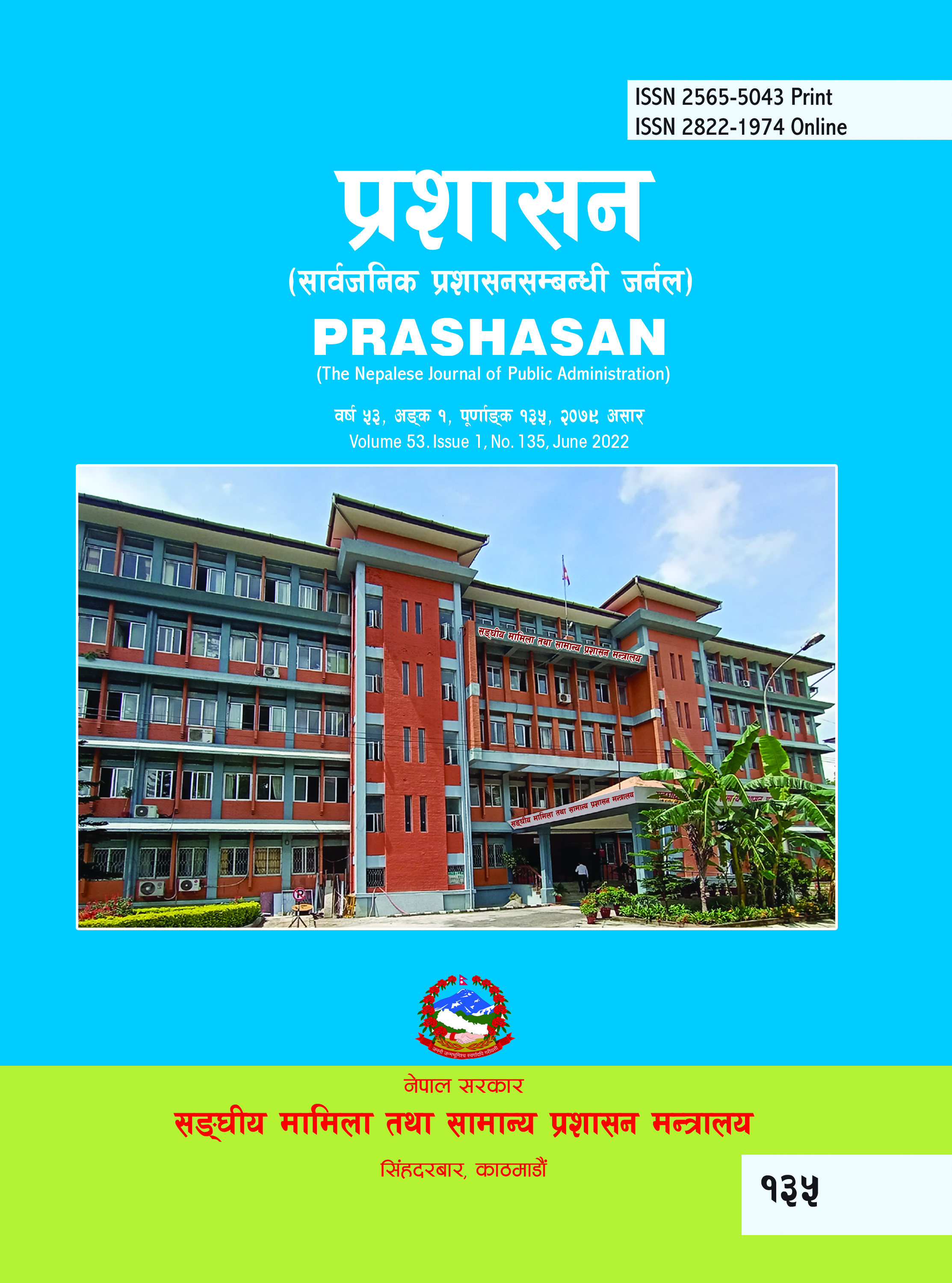Policy Lab: Efforts and Reflections
DOI:
https://doi.org/10.3126/prashasan.v53i1.46331Keywords:
Public Policy Mechanisms, Policy Making, Academia and government collaboration, State and Societal Transformation, Challenges in Public ServiceAbstract
The contemporary challenges in the current field of public service of developing countries have led the scholars to explore new methods to increase the efficiency of the service mechanisms. South Asia, in specific, requires new and innovative policy making initiatives that promise much more efficient mechanisms than of the current standing to mitigate the contemporary challenges posed by the governments of the nations of the region. In doing so, a very unique academic program and approach stands out which proposes the integration of academicians and scholarly experts in the actual policy making processes and mechanisms of the governments. Consequently, in 2019 Kathmandu University have launched academic program (Master of Public Policy and Management - MPPM) and researchers, primarily academicians, developed more innovative policy labs where new and in-use policies are analyzed, tested and critiqued upon. This mechanism not only promises a more efficient model of policy making mechanism but also gives the relevant government access to a wider advisory group of experts who analyze, synthesize and suggest enhanced and comprehensive approaches towards policy making. Describing the need for mutual collaboration between academia and government in Nepal, this paper explores the prospects of a living public policy lab at the Kathmandu University School of Management (KUSOM) as public policy think tank and center of excellence for the public policy making mechanisms of the government whilst providing a comprehensive analysis of the current and proposed public policies. KUSOM policy lab aims to generate and disseminate ideas, knowledge and critical understanding for the formulation of an improved policy and its effective implementation to contribute in promoting democratic norms and values, rule of law, social justice and good governance through a critical public policy dialogue. The Policy lab will stimulate a human-centered design thinking approach towards policy innovation and facilitate an advanced exchange of ideas, build trust and become a catalyst for change on both regional and national scales. Using the methods of quantitative and qualitative analysis, the paper aims to study the efficiencies of the public policies processing them in a controlled environment in Nepal where the effectiveness of the policies will be tested with and without the intervention of the KUSOM public policy lab to determine the significance of the policy lab in the policy making mechanisms of the government of Nepal.
Downloads
Downloads
Published
How to Cite
Issue
Section
License
- The copyright of published materials of the journal remains with Ministry of Federal Affairs and General Administration.
- The published article cannot be reproduced or copied commercially by any person or institution but it can be used non-commercially for academic, research and training purpose providing proper citation is given.




